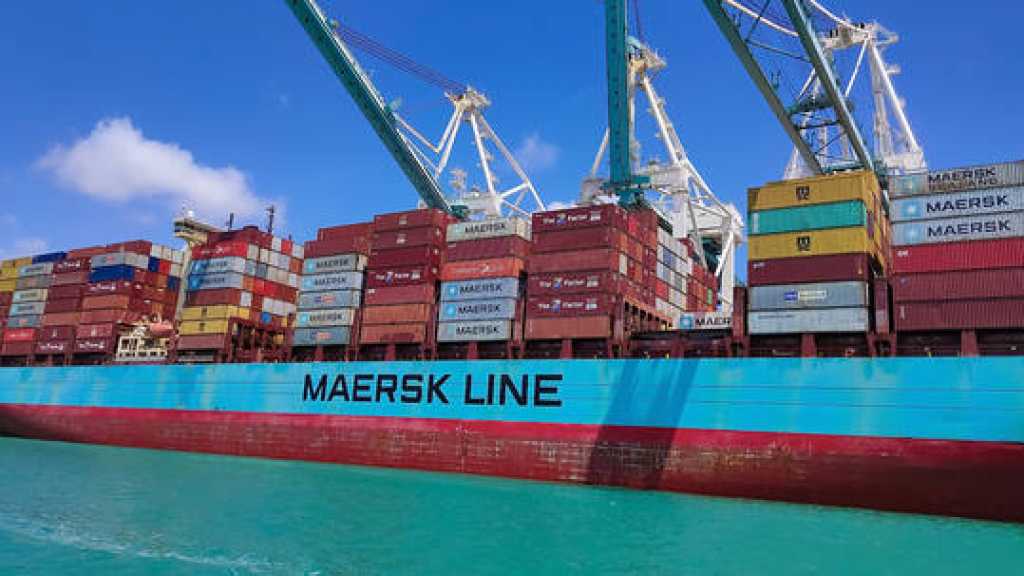Shipping Giants Divert Vessels from Red Sea

By Staff, Agencies
Two global shipping firms, Denmark’s AP Moller-Maersk and Germany’s Hapag-Lloyd, have extended their decision to not allow their vessels pass through the Red Sea and Suez Canal, citing security risks.
Maersk initially halted all transits through the waterway for 48 hours on Sunday, a day after its Singapore-flagged containership Maersk Hangzhou was struck by a missile fired from Yemen. However, on Tuesday, the company announced that it will extend the pause to shipping in the area “until further notice” as it reviews security risks of sailing the waterway.
“An investigation into the incident is ongoing, and we will continue to pause all cargo movement through the area while we further assess the constantly evolving situation,” Maersk said in its statement. The company had already halted shipping in the Red Sea in mid-December but resumed travel last week after the US and its allies announced a naval coalition in the region.
In its Tuesday statement, Maersk said some of its vessels will be rerouted around the Cape of Good Hope in South Africa. According to a shipping schedule published on the company's website late on Monday, it was forced to divert more than 100 vessels scheduled to use the route in the coming weeks.
Meanwhile, Hapag-Lloyd, which also halted shipping via the Red Sea last month, said it would extend the travel pause for at least another week.
“We monitor the situation closely day by day, but will continue to reroute our vessels until January 9th,” a company spokesperson told reporters on Tuesday.
Other shipping majors, including Evergreen Line and MSC Mediterranean Shipping Company, have also stopped transporting cargo via the Red Sea amid Houthi attacks. As the waterway is a key route linking Asia and Europe and facilitates roughly 12% of global trade, experts say the halt in shipping through the passage is already disrupting global supply chains, driving up freight costs and lengthening delivery times.
Comments
- Related News




